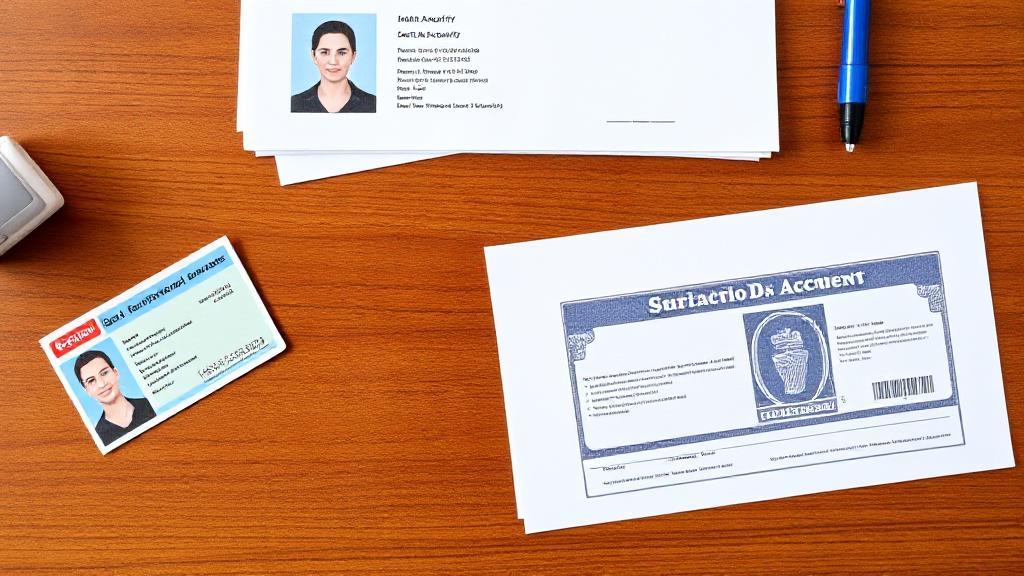Why Documents Are Required
Banks require documentation to verify your identity, ensure compliance with legal regulations, and protect against fraud. These documents help banks confirm that you are who you claim to be and that your funds are legitimate.
Primary Identity Documents
A valid government-issued photo ID is essential. Acceptable forms include:
- Passport
- Driver's License
- State ID Card
- Military ID
Proof of Address
You'll need recent documents (usually within 60-90 days) showing your current residential address:
- Utility Bills (electricity, water, gas)
- Lease or Rental Agreement
- Bank Statement from another financial institution
- Property Tax Statement
- Government Correspondence
Social Security Verification
- Social Security card
- Official document showing your Social Security number
- W-2 form from employer
For non-US citizens:
- Valid passport
- Immigration documents (visa, green card)
- Form W-8BEN
Special Account Types
Joint Accounts
- Identification for all account holders
- Proof of relationship (if applicable)
Business Accounts
- Business License
- Partnership Agreement (for partnerships)
- Articles of Incorporation (for corporations)
- Employer Identification Number (EIN)
- DBA certificate
Student Accounts
- Student ID
- Proof of Enrollment
Initial Deposit Requirements
| Account Type | Typical Minimum Deposit |
|---|---|
| Basic Checking | $25-$100 |
| Premium Checking | $100-$500 |
| Savings Account | $25-$100 |
| Business Account | $100-$1,000 |
Digital Banking Considerations
For online account opening, you'll need:
- Digital copies of identification documents
- Ability to upload clear photos/scans
- Valid email address
- Working phone number for verification
Important Note: Requirements may vary by bank and account type. It's recommended to check with your chosen financial institution for their specific requirements before visiting.
Tips for a Smooth Process
- Check the bank's website for specific requirements
- Prepare originals and copies of documents
- Schedule an appointment to save time
- Ensure all documents are current and not expired
- Bring multiple forms of ID if possible
For more information, visit:
- FDIC Consumer Resource Center
- Consumer Financial Protection Bureau (CFPB)
- Federal Trade Commission (FTC)
Remember that maintaining accurate and up-to-date documentation helps protect both you and the financial institution from identity theft and fraud.
